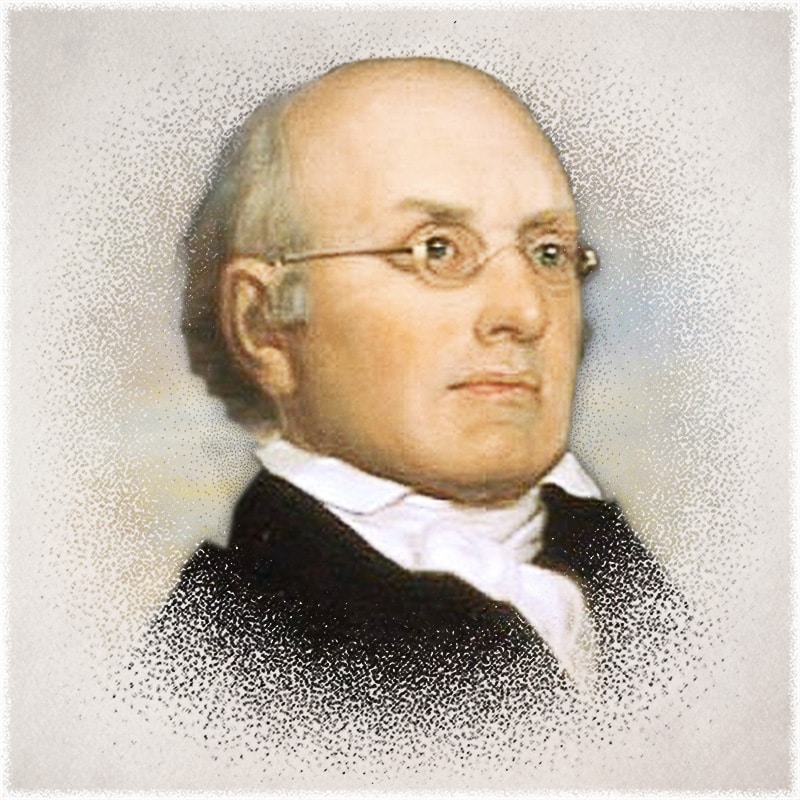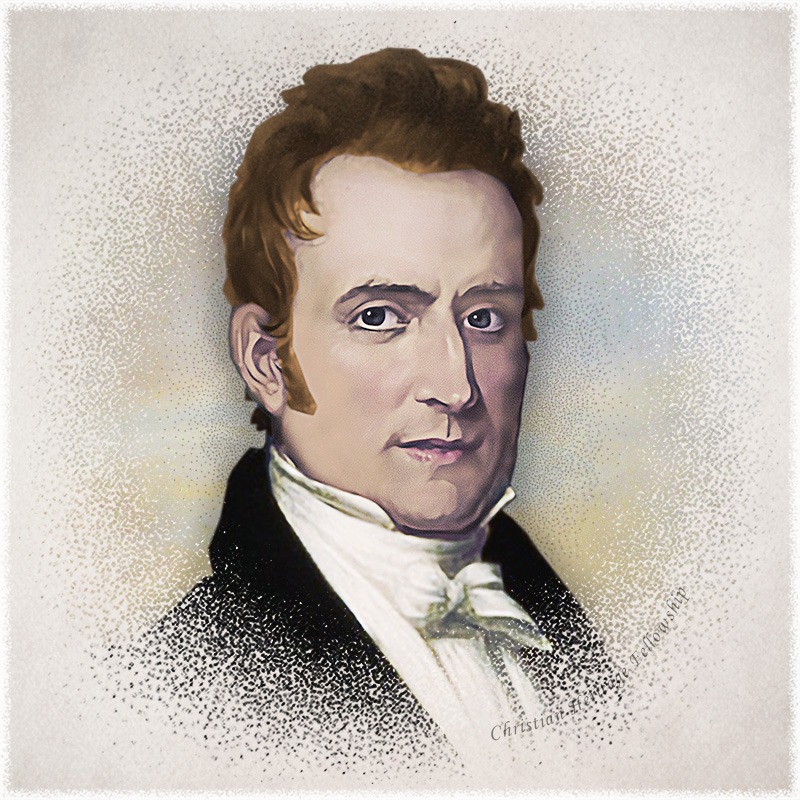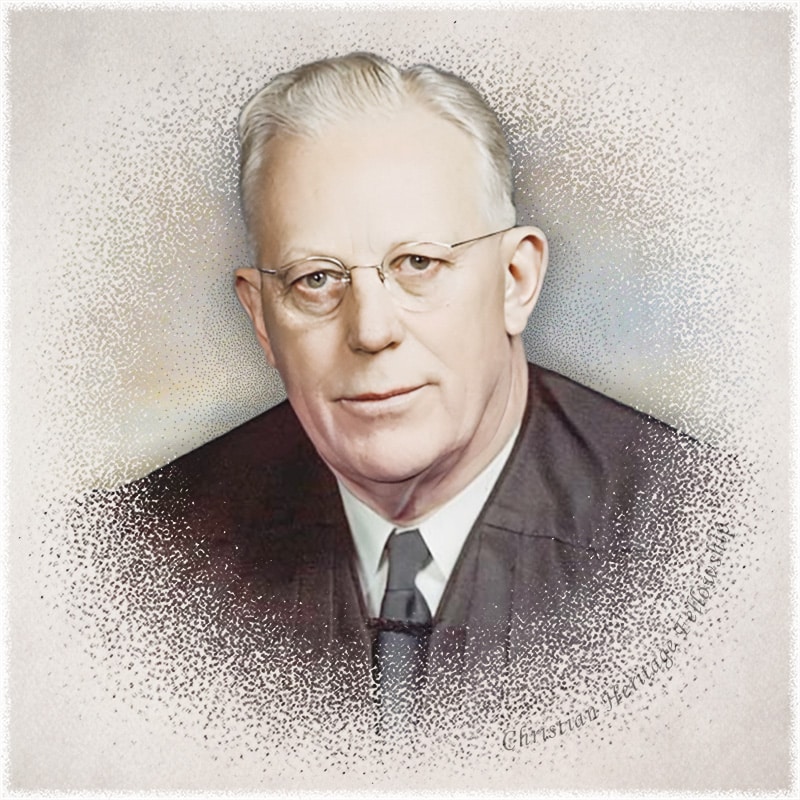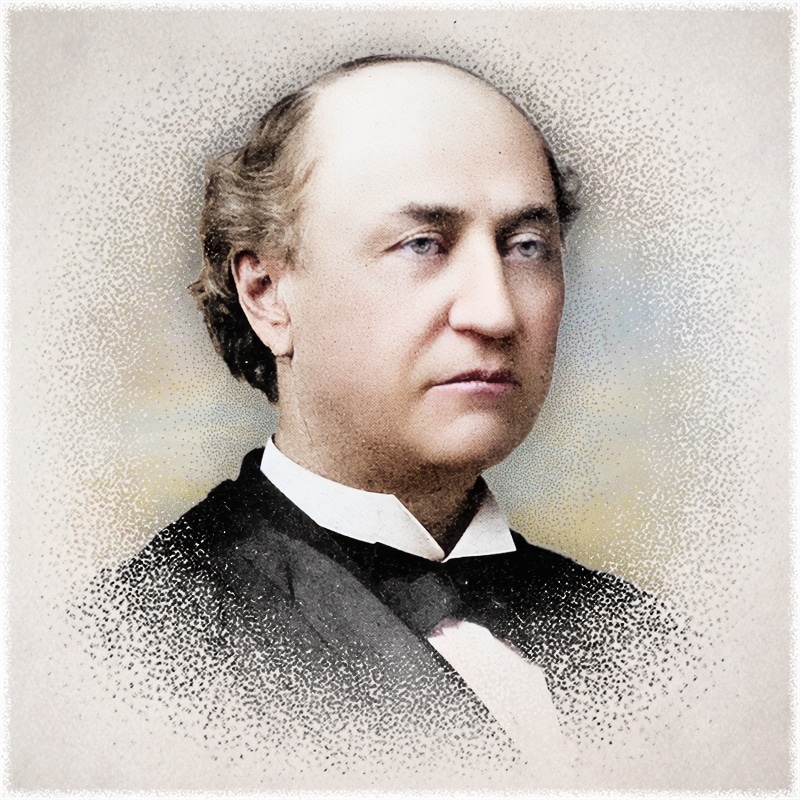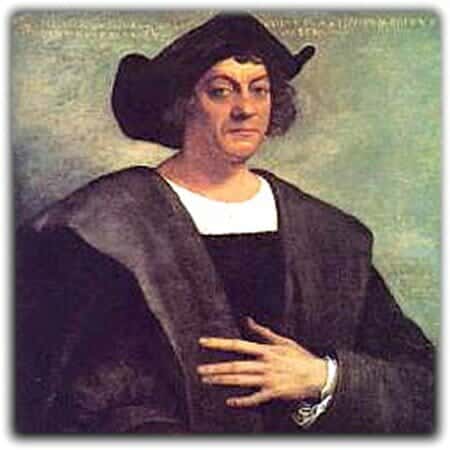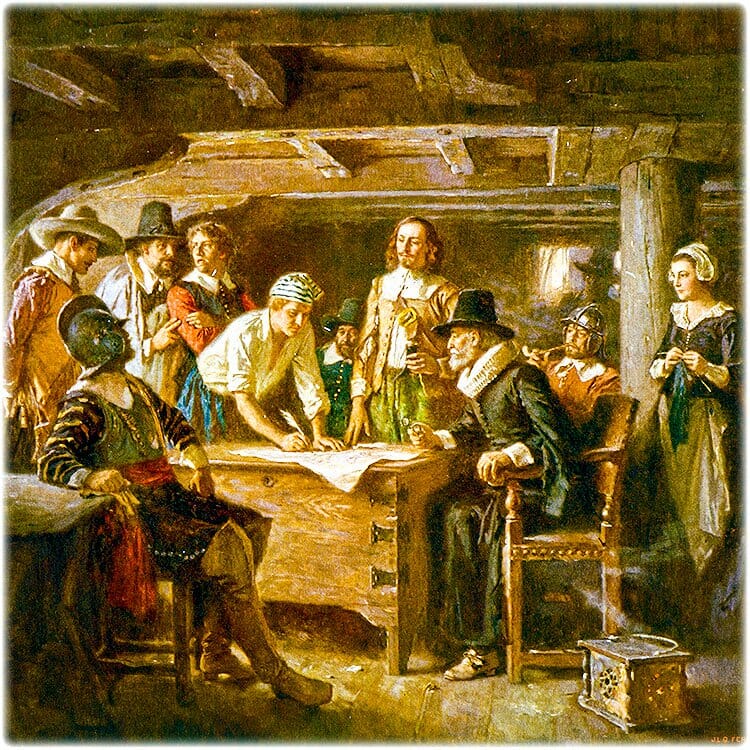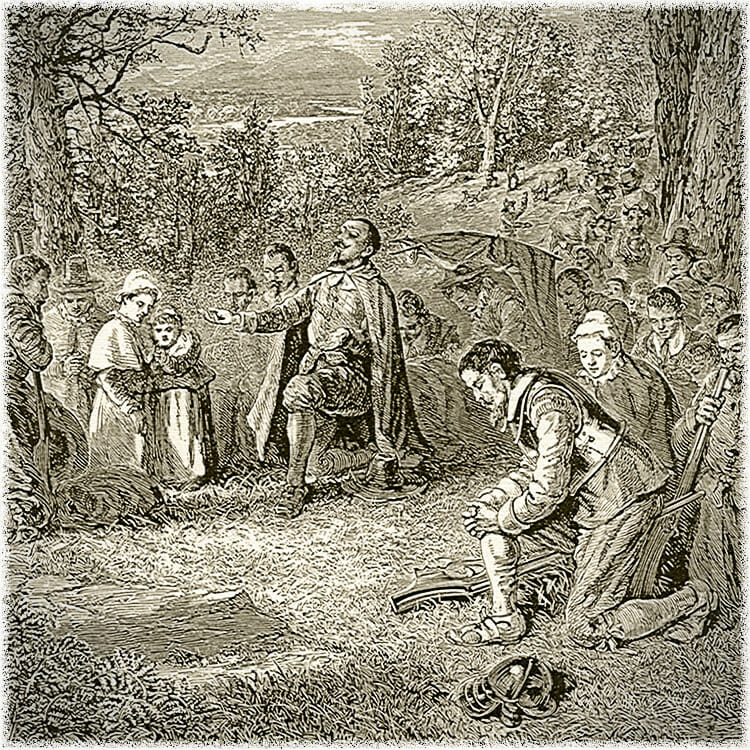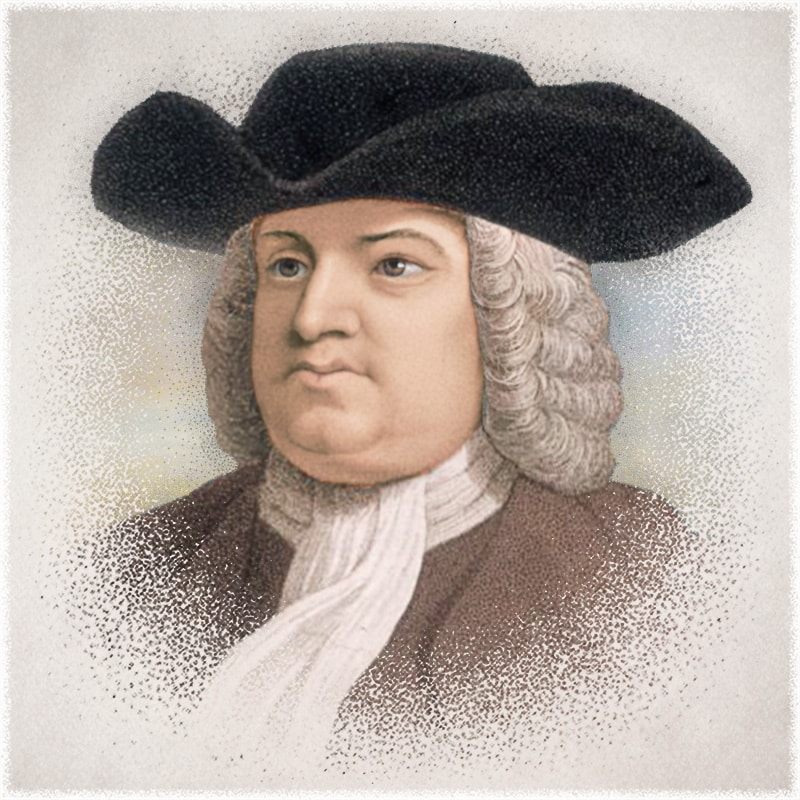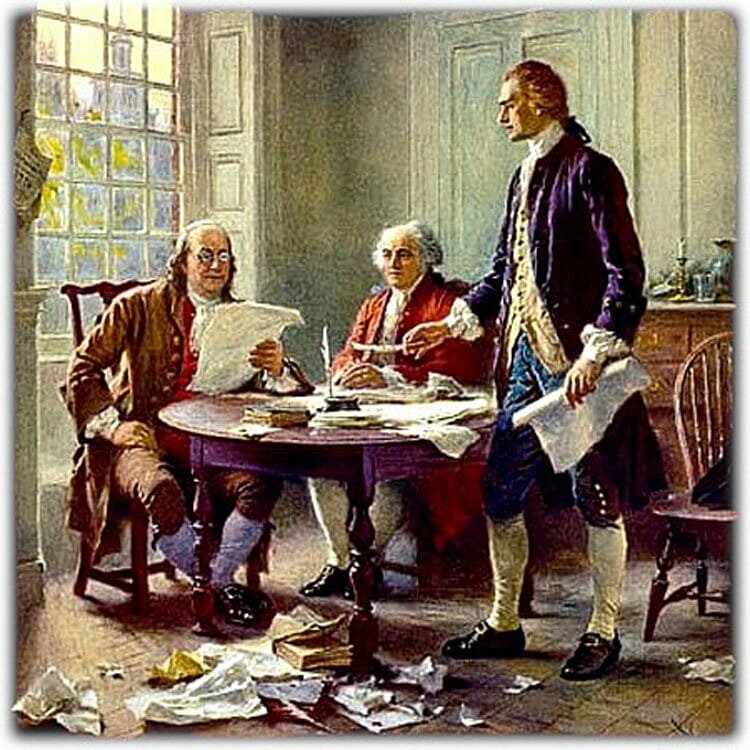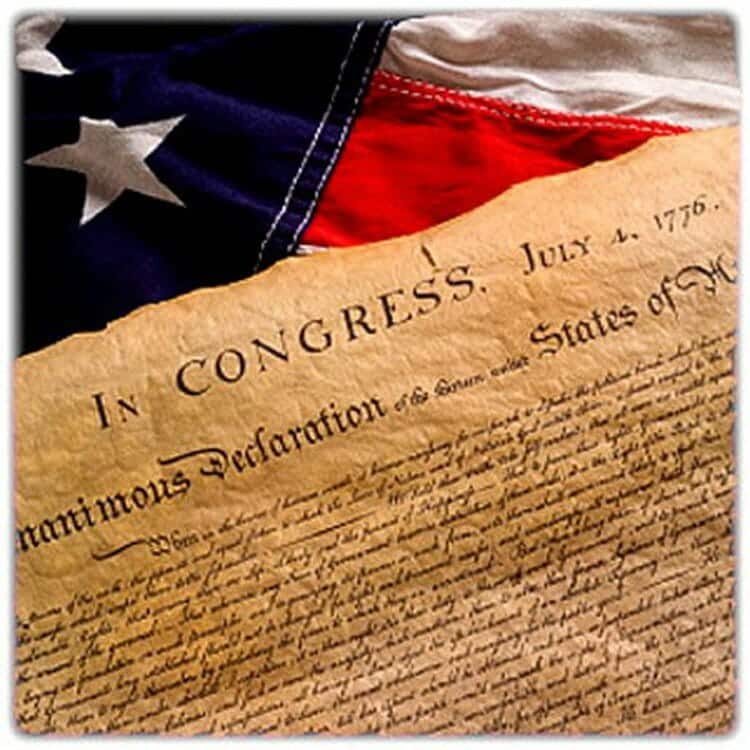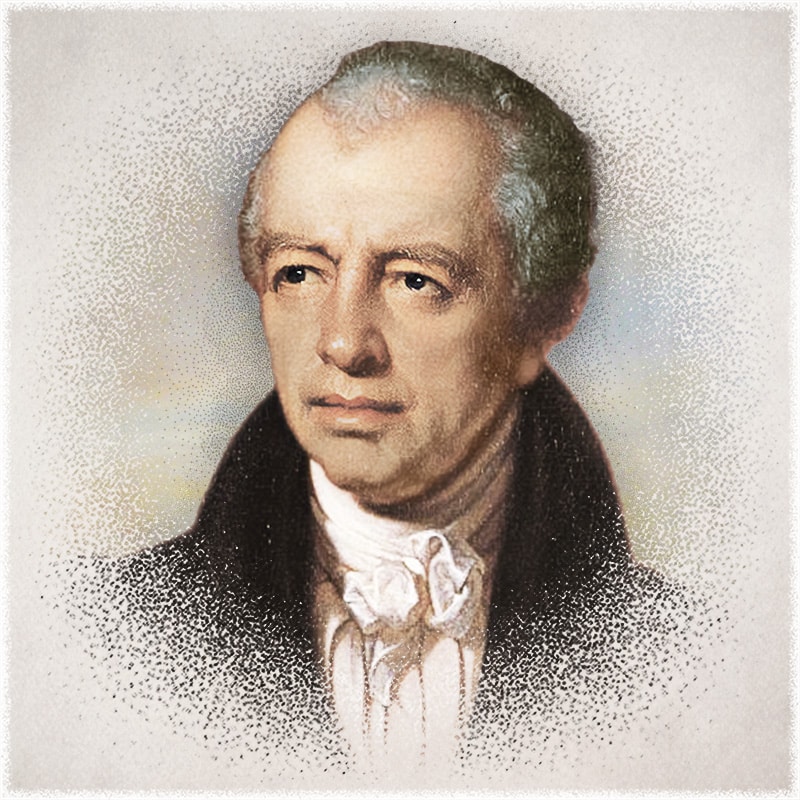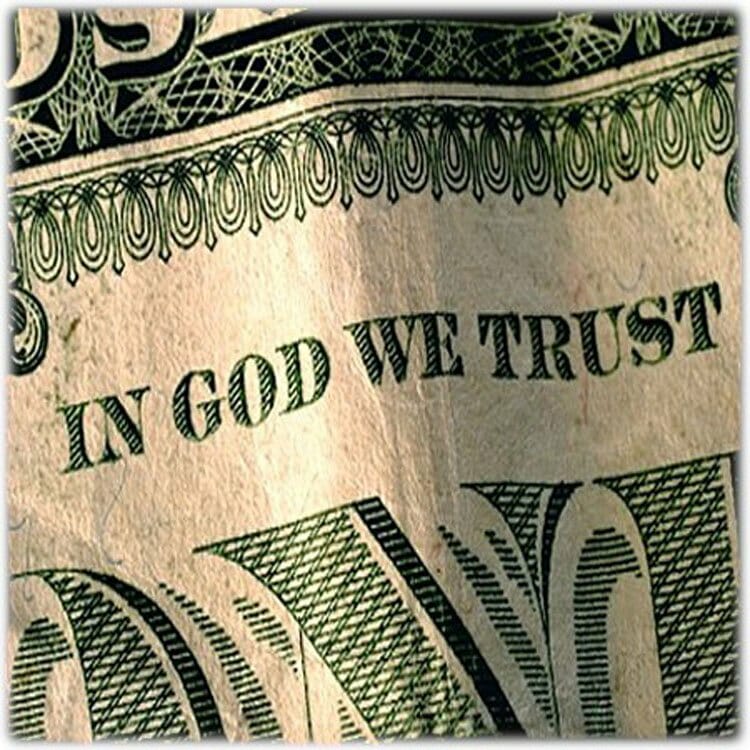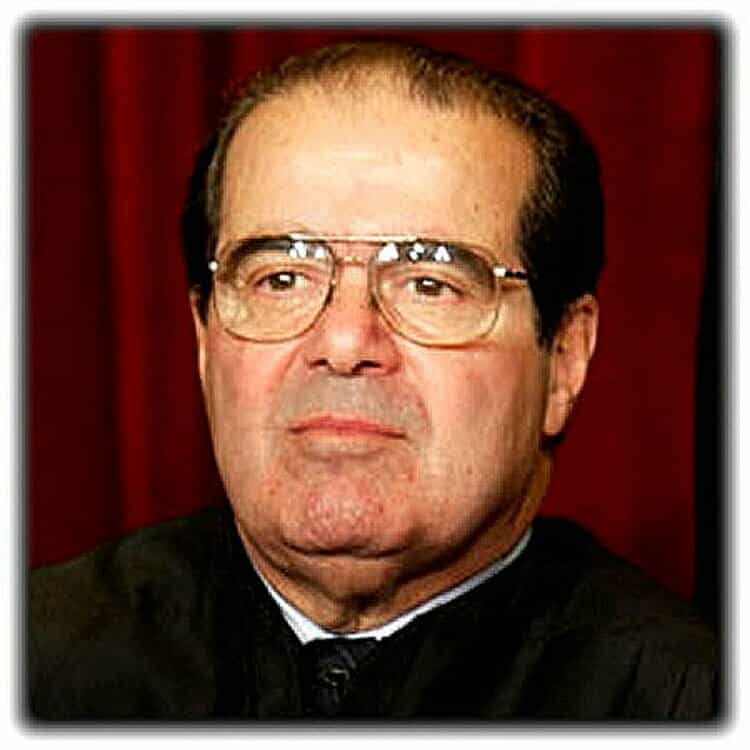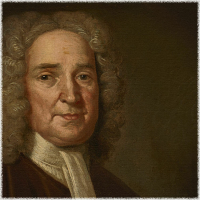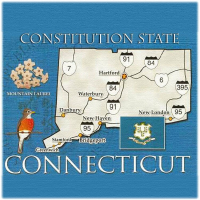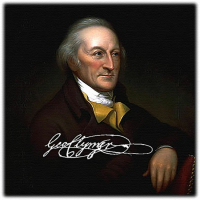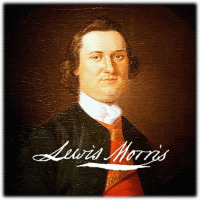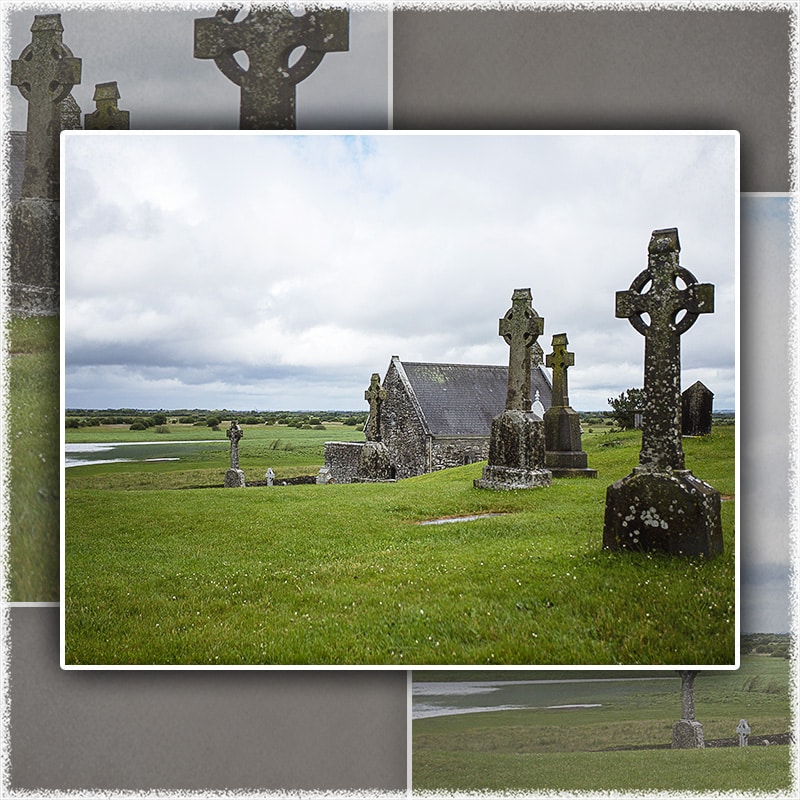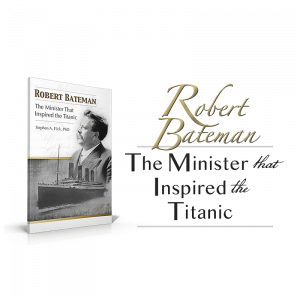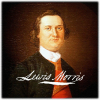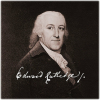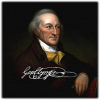Supreme Court Declares America a Christian Nation
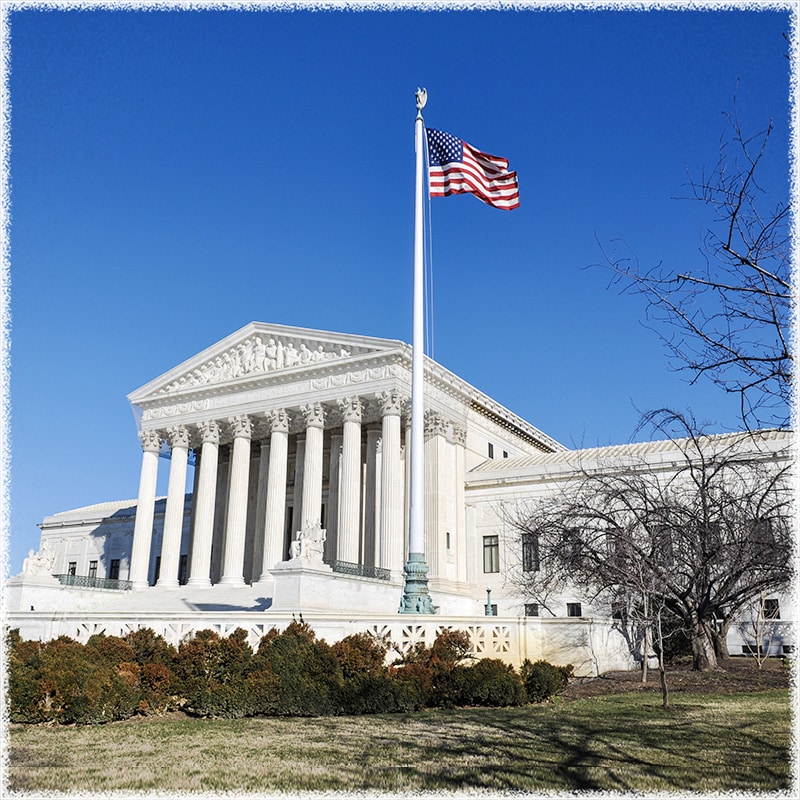
On February 29, 1892, The Supreme Court declared (in Holy Trinity v. United States) that the historical record of America overwhelmingly demonstrated that the United States "... is a Christian nation." Contrary to this historical and legal record, judges throughout the end of the twentieth and beginning of the twenty-first centuries have repeatedly ruled against the place that Christianity has enjoyed in American life. Rather than render decisions consistent with the legal foundation of America, activist judges have taken it upon themselves to attempt to establish a new foundation for American law—that being the subjective opinions of liberal activist judges. Thousands of pieces of evidence exist that demonstrate that America was founded as a Christian nation, and Holy Trinity v. United States is only one of the many pieces of that mosaic of historical truth. Supreme Court Declares America a Christian Nation
Article Contents
The subject addressed in this article is discussed at greater length in The Supreme Court Declares America a Christian Nation. Christian Heritage Fellowship would be honored to work with individuals, businesses, churches, institutions, or organizations to help communicate the truth concerning the positive influence of the Christian faith by providing bulk pricing: Please contact us here... To purchase a limited quantity of this publication, please click: Purchase here...
Opinions of Judicial Authorities
Before addressing the decision of the Supreme Court of February 1892, it would be helpful to observe the context of this decision with regard to other judicial authorities. The personal opinions of some of the most noteworthy judges provides insight into official rulings in previous generations—which, since the middle of the twentieth century, liberal judges have completely abandoned. Though many judicial authorities might be cited, several should suffice for the most candid reader.
Justice Joseph Story
Because of his profound influence upon the character of the Supreme Court, Joseph Story is regarded (along with several other prominent judges) as a "Father of American Jurisprudence." Remembered for his opinion in The Amistad case and his renown literary work, Commentaries on the Constitution of the United States (1833), Joseph Story served on the Supreme Court from 1811 to 1845. Justice Story left no doubt concerning the role of Christianity in the origin of America:
One of the beautiful boasts of our municipal jurisprudence is, that Christianity is part of the Common Law, from which it seeks the sanction of its rights, and by which it endeavors to regulate its doctrines. . . There never has been a period, in which the Common Law did not recognize Christianity as lying at its foundations.[1]
And in his widely influential Commentaries on the Constitution, he writes:
Now, there will probably be found few persons in this, or any other Christian country, who would deliberately contend, that it was unreasonable, or unjust to foster and encourage the Christian religion generally, as a matter of sound policy, as well as of revealed truth. In fact, every American colony, from its foundation down to the revolution, with the exception of Rhode Island, (if, indeed, that state be an exception,) did openly, by the whole course of its laws and institutions, support and sustain, in some form, the Christian religion; and almost invariably gave a peculiar sanction to some of its fundamental doctrines. And this has continued to be the case in some of the states down to the present period, without the slightest suspicion, that it was against the principles of public law, or republican liberty. Indeed, in a republic, there would seem to be a peculiar propriety in viewing the Christian religion, as the great basis, on which it must rest for its support and permanence, if it be, what it has ever been deemed by its truest friends to be, the religion of liberty. Montesquieu has remarked, that the Christian religion is a stranger to mere despotic power. The mildness so frequently recommended in the gospel is incompatible with the despotic rage, with which a prince punishes his subjects, and exercises himself in cruelty. . . Massachusetts, . . . has promulgated in her BILL OF RIGHTS the importance and necessity of the public support of religion, and the worship of God . . . The language of that bill of rights is remarkable for its pointed affirmation of the duty of government to support Christianity . . .[2]
There can be no question but what this Father of American Jurisprudence differs greatly from liberal judges who pontificate their irreligious and un-American version of "separation of church and state." While many more quotes from American courts acknowledging Christianity's role in the construction of the nation could be presented, only a couple more will be offered.
Justice John McLean
Appointed to the Supreme Court in 1829 by President Andrew Jackson, John McLean voted against his Democratic colleagues on the Court in the Dred Scott case of 1857. In 1856 and again in 1860, McLean was a candidate for the Republican presidential nomination, but lost both occasions—losing in 1860 to Abraham Lincoln. As Justice, he understood that the moral life of a nation determined its degree of freedom, and the freest people were those who lived under the moral laws of Christianity:
For many years, my hope for the perpetuity of our institutions has rested upon Bible morality and the general dissemination of Christian principles. This is an element which did not exist in the ancient republics. It is a basis on which free governments may be maintained through all time.
It is a truth experienced in all time, that a free government can have no other than a moral basis; and it requires a high degree of intelligence and virtue in the people to maintain it. Free government is not a self-moving machine. It can only act through agencies. And if its aims be low and selfish, if it addresses itself to the morbid feelings of humanity, its tendencies must be corrupt and weaken the great principles on which it is founded.
Our mission of freedom is not carried out by brute force, by canon [church] law, or any other law except the moral law and those Christian principles which are found in the Scriptures.[3]
Like most of America's Founding Fathers, Justice McLean sought to advocate Christianity that the principles of republican government might be maintained. With Chief Justice John Marshall, McLean served for years as president of the American Sunday School Union.
Click to read how America's Founding Fathers advocated Christianity through the American Sunday School Union!Chief Justice Earl Warren
It is significant to note the opinion of one more judge, who, lamentably, led the Supreme Court away from its historic and constitutional moorings. Earl Warren had been Attorney General of California and had served the state as governor for three terms. Having been appointed to the Supreme Court by President Dwight Eisenhower, Warren began his appointment in October 1953. Contrary to the principles and practice of America's Founding Fathers that placed the Supreme Court below the legislative and executive branches of government, Warren—as Chief Justice—elevated the role of the Court to assume the status of "three equal branches of government.
On February 15, 1954, Time magazine reported on a prayer breakfast convened by the International Council for Christian Leadership. In attendance at the breakfast were President Eisenhower, "the Vice President, the Chief Justice of the United States, Cabinet members, Congressmen, diplomats, [and] businessmen." Despite his liberal opinions, Earl Warren spoke at the breakfast and affirmed the historic role Christianity has occupied in national life, saying:
I believe no one can read the history of our country without realizing that the Good Book and the spirit of the Saviour have from the beginning been our guiding geniuses . . . Whether we look to the first Charter of Virginia . . . or to the Charter of New England . . . or to the Charter of Massachusetts Bay . . . or to the Fundamental Orders of Connecticut . . . the same objective is present: a Christian land governed by Christian principles . . .
I believe the entire Bill of Rights came into being because of the knowledge our forefathers had of the Bible and their belief in it: freedom of belief, of expression, of assembly, of petition, the dignity of the individual, the sanctity of the home, equal justice under law, and the reservation of powers to the people . . . I like to believe we are living today in the spirit of the Christian religion. I like also to believe that as long as we do so, no great harm can come to our country.[4]
While these three personal opinions reflect the intent of several of America's prominent judicial figures, as they stand they lack official sanction. However, these personal opinions are consistent with official decisions of the Supreme Court. Of these opinions from the Supreme Court, one is of particular interest.
Perhaps nowhere in American jurisprudence has Christianity's influence upon American law been more succinctly stated than in the case of the Church of the Holy Trinity v. United States, argued before the Supreme Court in January, 1892. In 1885, Congress had passed the Alien Contract Labor Law, which prohibited "the importation and migration of foreigners and aliens under contract or agreement to perform labor or service of any kind in the United States, its territories, and the District of Columbia." The Church of the Holy Trinity, New York had hired an English (Anglican) priest and had brought him to America to serve their congregation. When charges were brought against the church for breaking the Alien Contract Labor Law, a lower court ruled against the church. But upon appeal to the Supreme Court, the justices ruled in favor of the church, arguing the Congress had not intended to regulate this form of service.
Justice David Brewer wrote the majority (and unanimous) decision for the court. While the first part of the ruling describes how the decision was determined, the latter portion deals with the historical proofs that demonstrate that America is a Christian nation. After providing more than eighty pieces of evidence concerning America's Christian origin, Justice Brewer concluded his decision:
If we pass beyond these matters to a view of American life, as expressed by its laws, its business, its customs, and its society, we find everywhere a clear recognition of the same truth. Among other matters, note the following: the form of oath universally prevailing, concluding with an appeal to the Almighty; the custom of opening sessions of all deliberative bodies and most conventions with prayer; the prefatory words of all wills, “In the name of God, amen;” the laws respecting the observance of the Sabbath, with the general cessation of all secular business, and the closing of courts, legislatures, and other similar public assemblies on that day; the churches and church organizations which abound in every city, town, and hamlet; the multitude of charitable organizations existing everywhere under Christian auspices; the gigantic missionary associations, with general support, and aiming to establish Christian missions in every quarter of the globe. These, and many other matters which might be noticed, add a volume of unofficial declarations to the mass of organic utterances that this is a Christian nation. (See below)
Reading the decision of the Supreme Court below, as written by Justice Brewer, will allow Americans to discern how far activist judges have moved American law from its Christian foundation and why those jurists may rightly be charged as advocates of "tyranny".
Church of the Holy Trinity v. United States, 1892
THE UNITED STATES SUPREME COURT
Church of the Holy Trinity v. United States (143 U.S. 457)
Argued and submitted January 7, 1892 — Decided February 29, 1892
The Act of February 26, 1880, "to prohibit the importation and migration of foreigners and aliens under contract or agreement to perform labor in the United States, its Territories, and the District of Columbia," 23 Stat. 332, c. 164, does not apply to a contract between an alien, residing out of the United States, and a religious society incorporated under the laws of a state, whereby he engages to remove to the United States and to enter into the service of the society as its rector or minister.
THE case is stated in the opinion.
MR. JUSTICE BREWER delivered the opinion of the Court.
Plaintiff in error is a corporation duly organized and incorporated as a religious society under the laws of the State of New York. E. Walpole Warren was, prior to September, 1887, an alien residing in England. In that month the plaintiff in error made a contract with him by which he was to remove to the City of New York and enter into its service as rector and pastor, and in pursuance of such contract, Warren did so remove and enter upon such service. It is claimed by the United States that this contract on the part of the plaintiff in error was forbidden by 23 Stat. 332, c. 164, and an action was commenced to recover the penalty prescribed by that act. The circuit court held that the contract was within the prohibition of the statute, and rendered judgment accordingly, 36 F. 303, and the single question presented for our determination is whether it erred in that conclusion.
The first section describes the act forbidden, and is in these words:
Be it enacted by the Senate and House of Representatives of the United States of America in Congress assembled, that from and after the passage of this act it shall be unlawful for any person, company, partnership, or corporation, in any manner whatsoever, to prepay the transportation, or in any way assist or encourage the importation or migration, of any alien or aliens, any foreigner or foreigners, into the United States, its territories, or the District of Columbia under contract or agreement, parol or special, express or implied, made previous to the importation or migration of such alien or aliens, foreigner or foreigners, to perform labor or service of any kind in the United States, its territories, or the District of Columbia.
It must be conceded that the act of the corporation is within the letter of this section, for the relation of rector to his church is one of service, and implies labor on the one side with compensation on the other. Not only are the general words "labor" and "service" both used, but also, as it were to guard against any narrow interpretation and emphasize a breadth of meaning, to them is added "of any kind," and further, as noticed by the circuit judge in his opinion, the fifth section, which makes specific exceptions, among them professional actors, artists, lecturers, singers, and domestic servants, strengthens the idea that every other kind of labor and service was intended to be reached by the first section. While there is great force to this reasoning, we cannot think Congress intended to denounce with penalties a transaction like that in the present case. It is a familiar rule that a thing may be within the letter of the statute and yet not within the statute because not within its spirit nor within the intention of its makers. This has been often asserted, and the reports are full of cases illustrating its application. This is not the substitution of the will of the judge for that of the legislator, for frequently words of general meaning are used in a statute, words broad enough to include an act in question, and yet a consideration of the whole legislation, or of the circumstances surrounding its enactment, or of the absurd results which follow from giving such broad meaning to the words, makes it unreasonable to believe that the legislator intended to include the particular act. As said in Plowden 205:
From which cases it appears that the sages of the law heretofore have construed statutes quite contrary to the letter in some appearance, and those statutes which comprehend all things in the letter they have expounded to extend to but some things, and those which generally prohibit all people from doing such an act they have interpreted to permit some people to do it, and those which include every person in the letter they have adjudged to reach to some persons only, which expositions have always been founded upon the intent of the legislature, which they have collected sometimes by considering the cause and necessity of making the act, sometimes by comparing one part of the act with another, and sometimes by foreign circumstances.
In Margate Pier Co. v. Hannam, 3 B. andamp; Ald. 266, 270, Abbott, C. J., quotes from Lord Coke as follows: "Acts of Parliament are to be so construed as no man that is innocent or free from injury or wrong be, by a literal construction, punished or endangered." In the case of State v. Clark, 29 N.J. Law 96, 98-99, it appeared that an act had been passed making it a misdemeanor to willfully break down a fence in the possession of another person. Clark was indicted under that statute. The defense was that the act of breaking down the fence, though willful, was in the exercise of a legal right to go upon his own lands. The trial court rejected the testimony offered to sustain the defense, and the supreme court held that this ruling was error. In its opinion, the court used this language:
The act of 1855, in terms, makes the willful opening, breaking down, or injuring of any fences belonging to or in the possession of any other person a misdemeanor. In what sense is the term 'willful' used? In common parlance, 'willful' is used in the sense of 'intentional,' as distinguished from 'accidental' or 'involuntary.' Whatever one does intentionally, he does willfully. Is it used in that sense in this act? Did the legislature intend to make the intentional opening of a fence for the purpose of going upon the land of another indictable if done by permission or for a lawful purpose? . . . We cannot suppose such to have been the actual intent. To adopt such a construction would put a stop to the ordinary business of life. The language of the act, if construed literally, evidently leads to an absurd result. If a literal construction of the words of a statute be absurd, the act must be so construed as to avoid the absurdity. The court must restrain the words. The object designed to be reached by the act must limit and control the literal import of the terms and phrases employed.
In United States v. Kirby, 7 Wall. 482, 74 U. S. 486, the defendants were indicted for the violation of an act of Congress providing
that if any person shall knowingly and willfully obstruct or retard the passage of the mail, or of any driver or carrier, or of any horse or carriage carrying the same, he shall, upon conviction, for every such offense, pay a fine not exceeding one hundred dollars.
The specific charge was that the defendants knowingly and willfully retarded the passage of one Farris, a carrier of the mail, while engaged in the performance of his duty, and also in like manner retarded the steamboat General Buell, at that time engaged in carrying the mail. To this indictment the defendants pleaded specially that Farris had been indicted for murder by a court of competent authority in Kentucky; that a bench-warrant had been issued and placed in the hands of the defendant Kirby, the sheriff of the county, commanding him to arrest Farris and bring him before the court to answer to the indictment, and that, in obedience to this warrant, he and the other defendants, as his posse, entered upon the steamboat General Buell and arrested Farris, and used only such force as was necessary to accomplish that arrest. The question as to the sufficiency of this plea was certified to this Court, and it was held that the arrest of Farris upon the warrant from the state court was not an obstruction of the mail or the retarding of the passage of a carrier of the mail within the meaning of the act. In its opinion, the Court says:
All laws should receive a sensible construction. General terms should be so limited in their application as not to lead to injustice, oppression, or an absurd consequence. It will always therefore be presumed that the legislature intended exceptions to its language which would avoid results of this character. The reason of the law in such cases should prevail over its letter. The common sense of man approves the judgment mentioned by Puffendorf, that the Bolognian law which enacted 'that whoever drew blood in the streets should be punished with the utmost severity' did not extend to the surgeon who opened the vein of a person that fell down in the street in a fit. The same common sense accepts the ruling, cited by Plowden, that the statute of 1st Edw. II which enacts that a prisoner who breaks prison shall be guilty of felony, does not extend to a prisoner who breaks out when the prison is on fire, 'for he is not to be hanged because he would not stay to be burnt.' And we think that a like common sense will sanction the ruling we make, that the act of Congress which punishes the obstruction or retarding of the passage of the mail, or of its carrier, does not apply to a case of temporary detention of the mail caused by the arrest of the carrier upon an indictment for murder.
The following cases may also be cited: Henry v. Tilson, 17 Vt. 479; Ryegate v. Wardsboro, 30 Vt. 743; Ex Parte Ellis, 11 Cal. 220; Ingraham v. Speed, 30 Miss. 410; Jackson v. Collins, 3 Cowen 89; People v. Insurance Company 15 Johns. 358; Burch v. Newbury, 10 N.Y. 374; People v.Commissioners of Taxes, 95 N.Y. 554, 558; People v. Lacombe, 99 N.Y. 43, 49; Canal Co. v. Railroad Co., 4 G. andamp; J. 152; Osgood v. Breed, 12 Mass. 525, 530; Wilbur v. Crane, 13 Pick. 284; Oates v. National Bank,100 U. S. 239.
Among other things which may be considered in determining the intent of the legislature is the title of the act. We do not mean that it may be used to add to or take from the body of the statute, Hadden v. Collector, 5 Wall. 107, but it may help to interpret its meaning. In the case of United States v. Fisher, 2 Cranch 358, 6 U. S. 386, Chief Justice Marshall said:
On the influence which the title ought to have in construing the enacting clauses much has been said, and yet it is not easy to discern the point of difference between the opposing counsel in this respect. Neither party contends that the title of an act can control plain words in the body of the statute, and neither denies that, taken with other parts, it may assist in removing ambiguities. Where the intent is plain, nothing is left to construction. Where the mind labors to discover the design of the legislature, it seizes everything from which aid can be derived, and in such case the title claims a degree of notice, and will have its due share of consideration.
And in the case of United States v. Palmer, 3 Wheat. 610, 16 U. S. 631, the same judge applied the doctrine in this way:
The words of the section are in terms of unlimited extent. The words 'any person or persons' are broad enough to comprehend every human being. But general words must not only be limited to cases within the jurisdiction of the state, but also to those objects to which the legislature intended to apply them. Did the legislature intend to apply these words to the subjects of a foreign power, who in a foreign ship may commit murder or robbery on the high seas? The title of an act cannot control its words, but may furnish some aid in showing what was in the mind of the legislature. The title of this act is 'An act for the punishment of certain crimes against the United States.' It would seem that offenses against the United States, not offenses against the human race, were the crimes which the legislature intended by this law to punish. "It will be seen that words as general as those used in the first section of this act were by that decision limited, and the intent of Congress with respect to the act was gathered partially at least, from its title. Now the title of this act is, "An act to prohibit the importation and migration of foreigners and aliens under contract or agreement to perform labor in the United States, its territories, and the District of Columbia.
Obviously, the thought expressed in this reaches only to the work of the manual laborer, as distinguished from that of the professional man. No one reading such a title would suppose that Congress had in its mind any purpose of staying the coming into this country of ministers of the gospel, or, indeed, of any class whose toil is that of the brain. The common understanding of the terms "labor" and "laborers" does not include preaching and preachers, and it is to be assumed that words and phrases are used in their ordinary meaning. So, whatever of light is thrown upon the statute by the language of the title indicates an exclusion from its penal provisions of all contracts for the employment of ministers, rectors, and pastors.
Again, another guide to the meaning of a statute is found in the evil which it is designed to remedy, and for this the court properly looks at contemporaneous events, the situation as it existed, and as it was pressed upon the attention of the legislative body. United States v. Union Pacific Railroad,91 U. S. 72, 91 U. S. 79. The situation which called for this statute was briefly but fully stated by MR. JUSTICE BROWN when, as district judge, he decided the case of United States v. Craig, 28 F. 795, 798:
The motives and history of the act are matters of common knowledge. It had become the practice for large capitalists in this country to contract with their agents abroad for the shipment of great numbers of an ignorant and servile class of foreign laborers, under contracts by which the employer agreed, upon the one hand, to prepay their passage, while, upon the other hand, the laborers agreed to work after their arrival for a certain time at a low rate of wages. The effect of this was to break down the labor market and to reduce other laborers engaged in like occupations to the level of the assisted immigrant. The evil finally became so flagrant that an appeal was made to Congress for relief by the passage of the act in question, the design of which was to raise the standard of foreign immigrants and to discountenance the migration of those who had not sufficient means in their own hands, or those of their friends, to pay their passage.
It appears also from the petitions and in the testimony presented before the committees of Congress that it was this cheap, unskilled labor which was making the trouble, and the influx of which Congress sought to prevent. It was never suggested that we had in this country a surplus of brain toilers, and least of all that the market for the services of Christian ministers was depressed by foreign competition. Those were matters to which the attention of Congress or of the people was not directed. So far, then, as the evil which was sought to be remedied interprets the statute, it also guides to an exclusion of this contract from the penalties of the act.
A singular circumstance throwing light upon the intent of Congress is found in this extract from the report of the Senate committee on education and labor recommending the passage of the bill:
The general facts and considerations which induce the committee to recommend the passage of this bill are set forth in the report of the committee of the house. The committee report the bill back without amendment, although there are certain features thereof which might well be changed or modified in the hope that the bill may not fail of passage during the present session. Especially would the committee have otherwise recommended amendments, substituting for the expression, 'labor and service,' whenever it occurs in the body of the bill, the words 'manual labor' or 'manual service,' as sufficiently broad to accomplish the purposes of the bill, and that such amendments would remove objections which a sharp and perhaps unfriendly criticism may urge to the proposed legislation. The committee, however, believing that the bill in its present form will be construed as including only those whose labor or service is manual in character, and being very desirous that the bill become a law before the adjournment, have reported the bill without change.
P. 6059, Congressional Record, 48th Cong. And referring back to the report of the committee of the house, there appears this language:
It seeks to restrain and prohibit the immigration or importation of laborers who would have never seen our shores but for the inducements and allurements of men whose only object is to obtain labor at the lowest possible rate, regardless of the social and material wellbeing of our own citizens, and regardless of the evil consequences which result to American laborers from such immigration. This class of immigrants care nothing about our institutions, and in many instances never even heard of them. They are men whose passage is paid by the importers. They come here under contract to labor for a certain number of years. They are ignorant of our social condition, and, that they may remain so, they are isolated and prevented from coming into contact with Americans. They are generally from the lowest social stratum, and live upon the coarsest food, and in hovels of a character before unknown to American workmen. They, as a rule, do not become citizens, and are certainly not a desirable acquisition to the body politic. The inevitable tendency of their presence among us is to degrade American labor and to reduce it to the level of the imported pauper labor.
Page 5359, Congressional Record, 48th Congress.
We find, therefore, that the title of the act, the evil which was intended to be remedied, the circumstances surrounding the appeal to Congress, the reports of the committee of each house, all concur in affirming that the intent of Congress was simply to stay the influx of this cheap unskilled labor.
[Historical Proof That America Is A Christian Nation!]
But, beyond all these matters, no purpose of action against religion can be imputed to any legislation, state or national, because this is a religious people. This is historically true. From the discovery of this continent to the present hour, there is a single voice making this affirmation. The commission to Christopher Columbus, prior to his sail westward, is from "Ferdinand and Isabella, by the grace of God, King and Queen of Castile," etc., and recites that "it is hoped that by God's assistance some of the continents and islands in the ocean will be discovered," etc. The first colonial grant, that made to Sir Walter Raleigh in 1584, was from "Elizabeth, by the grace of God, of England, France and Ireland, Queen, defender of the faith," etc., and the grant authorizing him to enact statutes of the government of the proposed colony provided that "they be not against the true Christian faith now professed in the Church of England." The first charter of Virginia, granted by King James I in 1606, after reciting the application of certain parties for a charter, commenced the grant in these words:
We, greatly commending, and graciously accepting of, their Desires for the Furtherance of so noble a Work, which may, by the Providence of Almighty God, hereafter tend to the Glory of his Divine Majesty, in propagating of Christian Religion to such People, as yet live in Darkness and miserable Ignorance of the true Knowledge and Worship of God, and may in time bring the Infidels and Savages, living in those parts, to human Civility, and to a settled and quiet government; DO, by these our Letters-Patents, graciously accept of, and agree to, their humble and well intended Desires.
Language of similar import may be found in the subsequent charters of that colony, from the same king, in 1609 and 1611, and the same is true of the various charters granted to the other colonies. In language more or less emphatic is the establishment of the Christian religion declared to be one of the purposes of the grant. The celebrated compact made by the pilgrims in the Mayflower, 1620, recites:
Having undertaken for the Glory of God, and Advancement of the Christian Faith, and the Honour of our King and Country, a Voyage to plant the first Colony in the northern Parts of Virginia; Do by these Presents, solemnly and mutually, in the Presence of God and one another, covenant and combine ourselves together into a civil Body Politick, for our better Ordering and Preservation, and Furtherance of the Ends aforesaid.
The fundamental orders of Connecticut, under which a provisional government was instituted in 1638-39, commence with this declaration:
Forasmuch as it hath pleased the Almighty God by the wise disposition of his divine prudence so to Order and dispose of things that we the Inhabitants and Residents of Windsor, Hartford, and Wethersfield are now cohabiting and dwelling in and upon the River of Conectecotte and the Lands thereunto adjoining; And well knowing where a people are gathered together the word of God requires that to maintain the peace and union of such a people there should be an orderly and decent Government established according to God, to order and dispose of the affairs of the people at all seasons as occasion shall require; do therefore associate and co-join ourselves to be as one Public state or Commonwealth, and do, for ourselves and our Successors and such as shall be adjoined to us at any time hereafter, enter into Combination and Confederation together, to maintain and preserve the liberty and purity of the gospel of our Lord Jesus who we now profess, as also the discipline of the Churches, who according to the truth of the said gospel is now practiced amongst us.
In the charter of privileges granted by William Penn to the province of Pennsylvania, in 1701, it is recited:
Because no People can be truly happy, though under the greatest Enjoyment of Civil Liberties, if abridged of the Freedom of their Consciences, as to their Religious Profession and Worship; And Almighty God being the only Lord of Conscience, Father of Lights and Spirits, and the Author as well as Object of all divine Knowledge, Faith, and Worship, who only doth enlighten the Minds, and persuade and convince the Understandings of People, I do hereby grant and declare,
etc.
Coming nearer to the present time, the declaration of independence recognizes the presence of the Divine in human affairs in these words:
We hold these truths to be self-evident, that all men are created equal, that they are endowed by their Creator with certain unalienable Rights, that among these are Life, Liberty, and the pursuit of Happiness. . . . We therefore the Representatives of the United States of America, in General Congress, Assembled, appealing to the Supreme Judge of the world for the rectitude of our intentions, do, in the Name and by Authority of the good these Colonies, solemnly publish and declare,
etc.;
And for the support of this Declaration, with a firm reliance on the Protection of Divine Providence, we mutually pledge to each other our Lives, our Fortunes, and our sacred Honor.
If we examine the constitutions of the various states, we find in them a constant recognition of religious obligations. Every Constitution of every one of the forty-four states contains language which, either directly or by clear implication, recognizes a profound reverence for religion, and an assumption that its influence in all human affairs is essential to the wellbeing of the community. This recognition may be in the preamble, such as is found in the Constitution of Illinois, 1870:
We, the people of the State of Illinois, grateful to Almighty God for the civil, political, and religious liberty which He hath so long permitted us to enjoy, and looking to Him for a blessing upon our endeavors to secure and transmit the same unimpaired to succeeding generations,
etc.
It may be only in the familiar requisition that all officers shall take an oath closing with the declaration, "so help me God." It may be in clauses like that of the Constitution of Indiana, 1816, Art. XI, section 4: "The manner of administering an oath or affirmation shall be such as is most consistent with the conscience of the deponent, and shall be esteemed the most solemn appeal to God." Or in provisions such as are found in Articles 36 and 37 of the declaration of rights of the Constitution of Maryland, 1867:
That, as it is the duty of every man to worship God in such manner as he thinks most acceptable to Him, all persons are equally entitled to protection in their religious liberty, wherefore no person ought, by any law, to be molested in his person or estate on account of his religious persuasion or profession, or for his religious practice, unless, under the color of religion, he shall disturb the good order, peace, or safety of the state, or shall infringe the laws of morality, or injure others in their natural, civil, or religious rights; nor ought any person to be compelled to frequent or maintain or contribute, unless on contract, to maintain any place of worship or any ministry; nor shall any person, otherwise competent, be deemed incompetent as a witness or juror on account of his religious belief, provided he believes in the existence of God, and that, under his dispensation, such person will be held morally accountable for his acts, and be rewarded or punished therefore, either in this world or the world to come. That no religious test ought ever to be required as a qualification for any office of profit or trust in this state, other than a declaration of belief in the existence of God; nor shall the legislature prescribe any other oath of office than the oath prescribed by this constitution.
Or like that in Articles 2 and 3 of part 1st of the Constitution of Massachusetts, 1780:
It is the right as well as the duty of all men in society publicly, and at stated seasons, to worship the Supreme Being, the great Creator and Preserver of the universe. . . . As the happiness of a people and the good order and preservation of civil government essentially depend upon piety, religion, and morality, and as these cannot be generally diffused through a community but by the institution of the public worship of God and of public instructions in piety, religion, and morality, therefore, to promote their happiness, and to secure the good order and preservation of their government, the people of this commonwealth have a right to invest their legislature with power to authorize and require, and the legislature shall, from time to time, authorize and require, the several towns, parishes, precincts, and other bodies politic or religious societies to make suitable provision at their own expense, for the institution of the public worship of God and for the support and maintenance of public Protestant teachers of piety, religion, and morality, in all cases where such provision shall not be made voluntarily.
Or, as in sections 5 and 14 of Article 7 of the Constitution of Mississippi, 1832:
No person who denies the being of a God, or a future state of rewards and punishments, shall hold any office in the civil department of this state. . . . Religion morality, and knowledge being necessary to good government, the preservation of liberty, and the happiness of mankind, schools, and the means of education, shall forever be encouraged in this state.
Or by Article 22 of the Constitution of Delaware, (1776), which required all officers, besides an oath of allegiance, to make and subscribe the following declaration:
I, A. B., do profess faith in God the Father, and in Jesus Christ His only Son, and in the Holy Ghost, one God, blessed for evermore, and I do acknowledge the Holy Scriptures of the Old and New Testament to be given by divine inspiration.
Even the Constitution of the United States, which is supposed to have little touch upon the private life of the individual, contains in the First Amendment a declaration common to the constitutions of all the states, as follows: "Congress shall make no law respecting an establishment of religion, or prohibiting the free exercise thereof," etc., and also provides in Article I, Section 7, a provision common to many constitutions, that the executive shall have ten days (Sundays excepted) within which to determine whether he will approve or veto a bill.
There is no dissonance in these declarations. There is a universal language pervading them all, having one meaning. They affirm and reaffirm that this is a religious nation. These are not individual sayings, declarations of private persons. They are organic utterances. They speak the voice of the entire people. While, because of a general recognition of this truth, the question has seldom been presented to the courts, yet we find that in Updegraph v. Commonwealth, 11 S. andamp; R. 394, 400, it was decided that
Christianity, general Christianity, is, and always has been, a part of the common law of Pennsylvania; . . . not Christianity with an established church and tithes and spiritual courts, but Christianity with liberty of conscience to all men.
And in People v. Ruggles, 8 Johns. 290, 294-295, Chancellor Kent, the great commentator on American law, speaking as Chief Justice of the Supreme Court of New York, said:
The people of this state, in common with the people of this country, profess the general doctrines of Christianity as the rule of their faith and practice, and to scandalize the author of these doctrines is not only, in a religious point of view, extremely impious, but, even in respect to the obligations due to society, is a gross violation of decency and good order. . . . The free, equal, and undisturbed enjoyment of religious opinion, whatever it may be, and free and decent discussions on any religious subject, is granted and secured; but to revile, with malicious and blasphemous contempt, the religion professed by almost the whole community is an abuse of that right. Nor are we bound by any expressions in the Constitution, as some have strangely supposed, either not to punish at all, or to punish indiscriminately the like attacks upon the religion of Mahomet or of the Grand Lama, and for this plain reason, that the case assumes that we are a Christian people, and the morality of the country is deeply engrafted upon Christianity, and not upon the doctrines or worship of those impostors.
And in the famous case of Vidal v. Girard's Executors, 2 How. 127, 43 U. S. 198, this Court, while sustaining the will of Mr. Girard, with its provision for the creation of a college into which no minister should be permitted to enter, observed: "It is also said, and truly, that the Christian religion is a part of the common law of Pennsylvania."
If we pass beyond these matters to a view of American life, as expressed by its laws, its business, its customs, and its society, we find everywhere a clear recognition of the same truth. Among other matters, note the following: the form of oath universally prevailing, concluding with an appeal to the Almighty; the custom of opening sessions of all deliberative bodies and most conventions with prayer; the prefatory words of all wills, "In the name of God, amen;" the laws respecting the observance of the Sabbath, with the general cessation of all secular business, and the closing of courts, legislatures, and other similar public assemblies on that day; the churches and church organizations which abound in every city, town, and hamlet; the multitude of charitable organizations existing everywhere under Christian auspices; the gigantic missionary associations, with general support, and aiming to establish Christian missions in every quarter of the globe. These, and many other matters which might be noticed, add a volume of unofficial declarations to the mass of organic utterances that this is a Christian nation. In the face of all these, shall it be believed that a Congress of the United States intended to make it a misdemeanor for a church of this country to contract for the services of a Christian minister residing in another nation?
Suppose, in the Congress that passed this act, some member had offered a bill which in terms declared that if any Roman Catholic church in this country should contract with Cardinal Manning to come to this country and enter into its service as pastor and priest, or any Episcopal church should enter into a like contract with Canon Farrar, or any Baptist church should make similar arrangements with Rev. Mr. Spurgeon, or any Jewish synagogue with some eminent rabbi, such contract should be adjudged unlawful and void, and the church making it be subject to prosecution and punishment. Can it be believed that it would have received a minute of approving thought or a single vote? Yet it is contended that such was, in effect, the meaning of this statute. The construction invoked cannot be accepted as correct. It is a case where there was presented a definite evil, in view of which the legislature used general terms with the purpose of reaching all phases of that evil, and thereafter, unexpectedly, it is developed that the general language thus employed is broad enough to reach cases and acts which the whole history and life of the country affirm could not have been intentionally legislated against. It is the duty of the courts under those circumstances to say that, however broad the language of the statute may be, the act, although within the letter, is not within the intention of the legislature, and therefore cannot be within the statute.
The judgment will be reversed, and the case remanded for further proceedings in accordance with this opinion. [5]
Thirteen years after this landmark decision, Justice Brewer penned this small book that amplified what he meant when he and the court declared that America was a Christian nation. Going beyond the historical influences of Christianity in the establishment and development of America as he did in the Holy Trinity v. United States decision, Justice Brewer boldly called the nation to continue to allow the influences of biblical Christianity to inform all of America life.
This small book is not only a summary of the historical evidence of Christianity's influence upon the founding of America, but is also Justice Brewer's advocacy of the cause of Christ for America and the world. In his first chapter, Justice Brewer further explains the Christian founding of America. His second chapter explains the Christian duty of citizens to America to ensure the advancement of the nation under biblical and Christian principles. He argues that civilization is dependent upon the advocacy of Christianity, and to the degree that citizens are willing to advocate these principles, to that degree they and the nation will be blessed. Finally, Justice Brewer argues that the world will be blessed, not primarily through material advances, but through allegiance to the principles of Christ that transforms the individual, the family, the nation, and the world.
For decades, Supreme Court justices have usurped the legal and moral foundation of America. Supreme Court Associate Justice, Antonin Scalia, an outspoken critic of his colleagues and judicial activism, has argued that courts no longer base their decisions upon America's Christian moral and legal foundation. Indeed, liberal judicial activism has set American law upon a completely new course that leads away from the Christian principles of the Founding Fathers and should, therefore, be regarded as usurpation. Since as early as the 1940s, the voice of the American people at the ballot box has been increasingly muted by a comparatively small group of social engineers—the liberal activist judges. To understand the mindset of the American court prior to late-twentieth-century judicial activism, get your copy of Justice David Brewer's book, The United States a Christian Nation.
America deserves to know its true heritage.
Please contribute today!
[1] Joseph Story and William Wetmore Story, Life and Letters of Joseph Story: Associate Justice of the Supreme Court of the United States, and Dane Professor of Law at Harvard University (Boston: Charles C. Little and James Brown, 1851), 2:8.
[2] Joseph Story, Commentaries on the Constitution of the United States with a Preliminary Review of the Constitutional History of the Colonies and States, before the Adoption of the Constitution, 3 vols. (Boston: Hilliard, Gray, and Company, 1833), 3:724-25.
[3] Benjamin Morris, Christian Life and Character of the Civil Institutions of the United States, Developed in the Official and Historical Annals of the Republic (Philadelphia: George W. Childs, 1864), 639.
[4] "Religion: Breakfast in Washington," Time, Monday, Feb. 15, 1954.
[5] THE UNITED STATES SUPREME COURT Vs. HOLY TRINITY CHURCH v. U.S. 143 U.S. 457, 12 S.Ct. 511, 36 L.Ed. 226 Feb. 29, 1892, http://supreme.justia.com/us/143/457/case.html, November 21, 2011.

